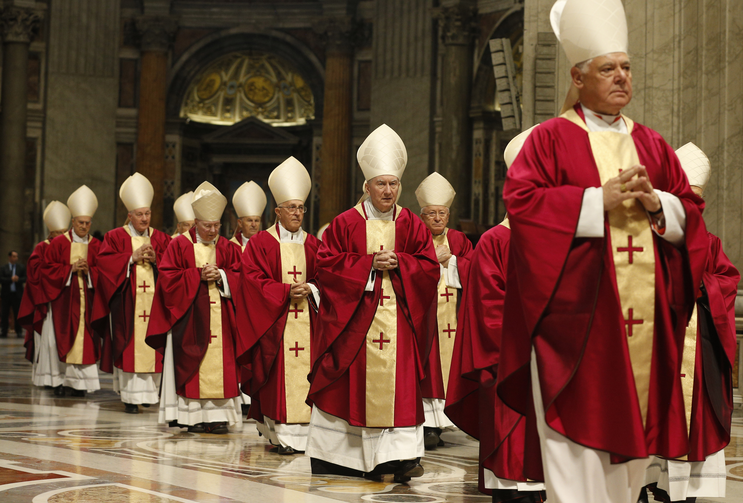Women in the College of Cardinals: A modest proposal for a more equal (and prophetic) church
Editor’s note: In a lecture at Fordham University in New York in 1996, Avery Dulles, S.J., addressed what he saw as the major objections to the apostolic letter of Pope John Paul II in 1994, “Ordinatio Sacerdotalis,” on the inadmissibility of women to the Catholic priesthood. The talk was published in Origins (Vol. 25, No. 45, dated May 2, 1996) as “Gender and Priesthood: Examining the Teaching” and was reprinted in America in 2001. To mark the 25th anniversary of this essay, America asked two scholars, Lucetta Scaraffia and Julia Brumbaugh, to respond. The full text of the Dulles essay can be found here.
This article is part of The Conversation with America Media, offering diverse perspectives on important issues in the life of the church.
Avery Dulles’s lucid essay on the female priesthood, or rather its impossibility within the Catholic Church, raises fundamental questions that go beyond the scope of the ordination of women: What is the church’s relationship to its female members overall? And by what criteria do we judge the institutional church’s response to women?
If we judge by modern standards of equality and equal opportunity between women and men, are we not in danger of placing too much emphasis on social conditioning? A religion, and particularly the Christian religion, is not simply a moral system. It is born of revelation and obeys a tradition, and we must take that into account.
As Christians, we certainly do not lack the arguments within the Gospel tradition to find sure and clear indications in this regard. In Scripture, Jesus acknowledges that women have an equal—and sometimes even superior—capacity for spiritual understanding, and he entrusts them with complex and difficult missions, including the commission to tell the other disciples of his resurrection (Jn 20:1-18; Mt 28:1-10; Mk 16:1-11). If he does not entrust them with the priesthood, it is certainly not because he considers them inferior, nor because of the influence of the social customs of his time. More than once, and precisely on the subject of women, he is able to subvert these customs with courage (Jn 4:1-42; Lk 7:36-50). We can deduce from this that Jesus wants to point women and men to missions of different kinds, but equal value.



No comments:
Post a Comment